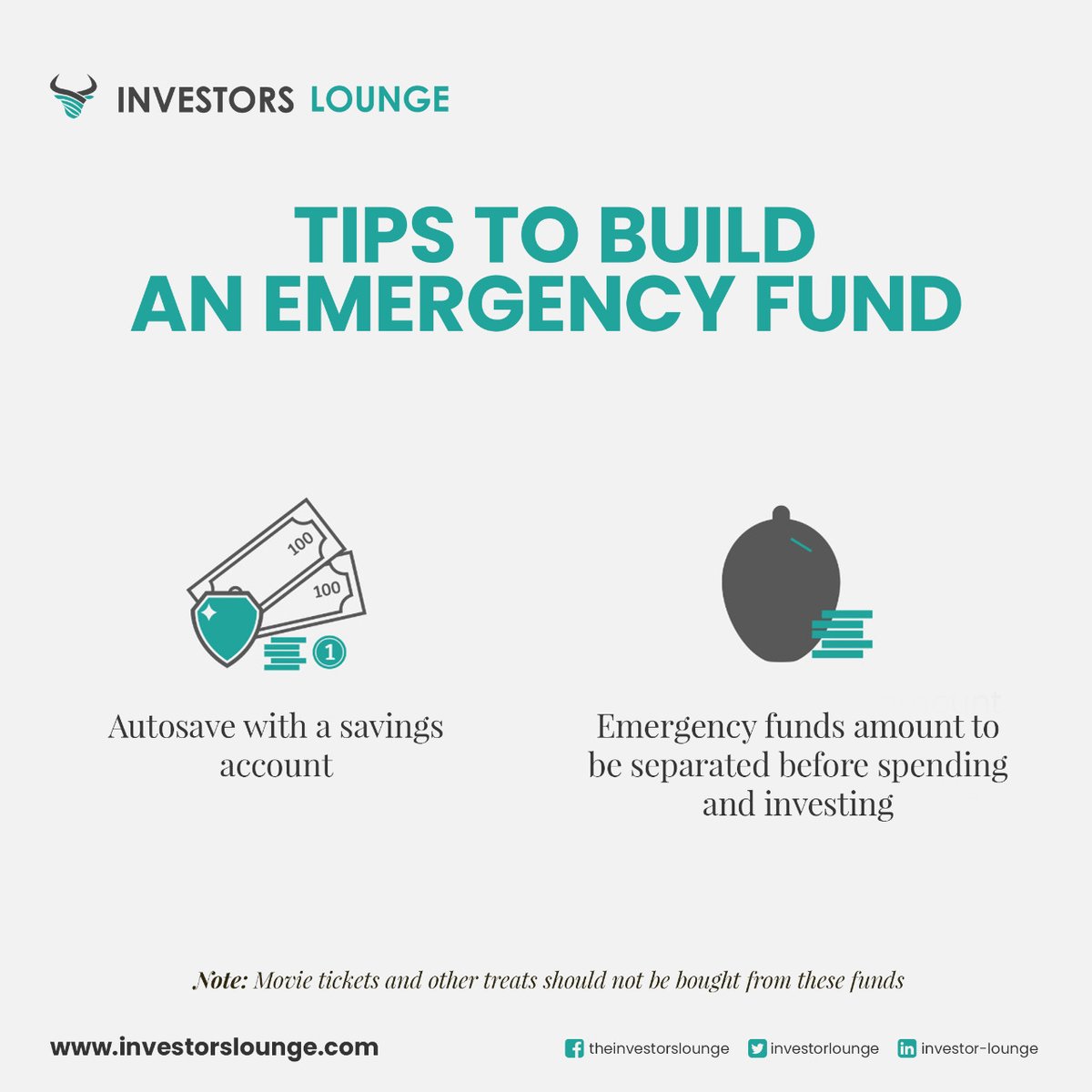
(1/n) An #emergencyfund is like a pool of just-in-case money. It's a vital piece of your #financial safety net. Your emergency fund is the money you would rely on if:
➡️ You lost your job
➡️ Your laptop/mobile broke down
➡️ You ended up in a medical emergency
➡️ You lost your job
➡️ Your laptop/mobile broke down
➡️ You ended up in a medical emergency

(2/n) ⚪ Having an emergency fund can help you roll with life’s unpredictable punches and makes it easier to recover from setbacks that could otherwise turn into financial disasters.
#BachatSeekhayGaPakistan #EmergencyFunds #FinancialLIteracy #emergencyfundsaving
#BachatSeekhayGaPakistan #EmergencyFunds #FinancialLIteracy #emergencyfundsaving

(3/n) ⚪ Experts typically recommend that you keep 3 to 6 months of living expenses in your emergency fund (an amount that’s probably less than three to six months of your income). 

(4/n) ⚪ Starting an emergency fund is a pretty painless process. But keeping it going (and protected!) is where willpower comes in. Here’s how:
⚪ Step 1
Figure out how much you should have in your fund
↓
Step 2
Pick a weekly or monthly savings goal
↓
Step 3
Keep going!
⚪ Step 1
Figure out how much you should have in your fund
↓
Step 2
Pick a weekly or monthly savings goal
↓
Step 3
Keep going!

(5/n) Slow and steady wins the race
↓
Step 4
Check in and reevaluate your emergency fund anytime you have a major life change (like a raise or an addition to your family)
↓
Step 4
Check in and reevaluate your emergency fund anytime you have a major life change (like a raise or an addition to your family)

(n/n) ⚪ If you ever need to dip into your emergency fund for a truly unexpected expense, even out your contributions once you’re financially able. Don’t be a one-time saver!
⚪ Do you have an emergency fund? Share with us how you prioritize it below!
#InvestorsLounge
⚪ Do you have an emergency fund? Share with us how you prioritize it below!
#InvestorsLounge
• • •
Missing some Tweet in this thread? You can try to
force a refresh



